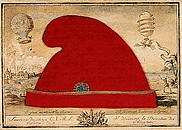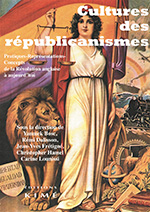Thomas Paine enterré ? En ligne
Dans un article intitulé "Thomas Paine: The English Dimension" et publié dans Selected Writings of Thomas Paine , Shapiro and Calvert, eds., Yale U. Press, 2014, l'historien britannique J. C. D. Clark entend montrer que Thomas Paine n'était qu'un auteur mineur, étranger aux Lumières et sans influence sur les révolutions de la fin du XVIIIe siècle. Tout au long du XIXe siècle et jusque dans les années 1970, Thomas Paine a été exclu du "récit national" américain des Founding Fathers. Considéré au mieux comme un pamphlétaire secondaire, au pire comme un "filthy little atheist" comme le disait le président Theodore Roosevelt au début du XXe siècle, Paine n'est sorti du quasi-néant historiographique dans lequel il se trouvait que depuis une trentaine d'années. Apparemment, J. C. D. Clark souhaite qu'il y retourne… Gary Berton, secrétaire de la Thomas Paine National Historical Association, en rend compte et lui répond sur le site de la TPNHA :
The great historian E. H. Carr said, "By and large, the historian will get the kind of facts he wants. History means interpretation." In an essay published as part of a new collection of writings by and about Thomas Paine (Selected Writings of Thomas Paine, Yale U. Press, 2014), J. C. D. Clark has pushed this premise to absurd limits.
In contradistinction to the rest of the book, which contains a selection of primarily major works of Thomas Paine, Clark tries to refute any influence Paine had on the world, and scolds scholars for claiming he did. There is a long history of marginalizing Thomas Paine by conservative historians, from Jared Sparks to Forest MacDonald to David McCulloch. Clark’s essay is the latest. In an awkward juxtaposition with Paine’s own writings, Clark questions the need to read Paine at all.
Lire la suite du texte de Gary Berton sur le site de la TPNHA


